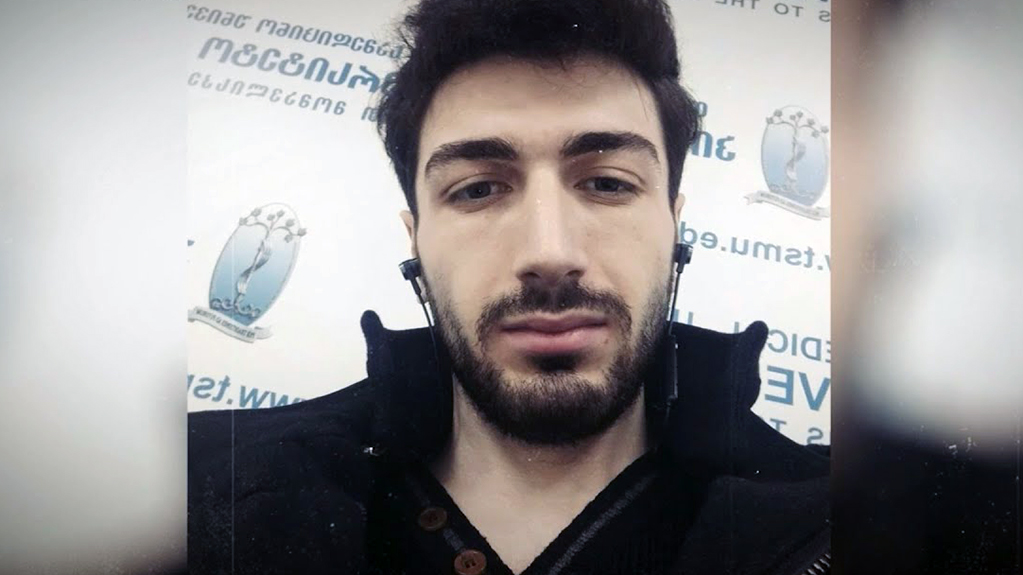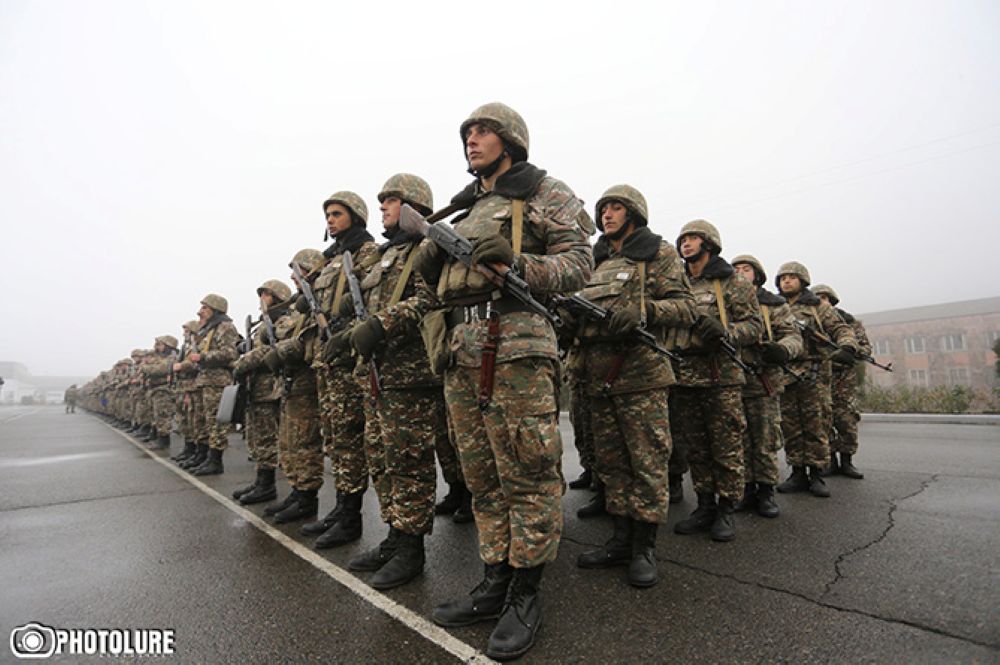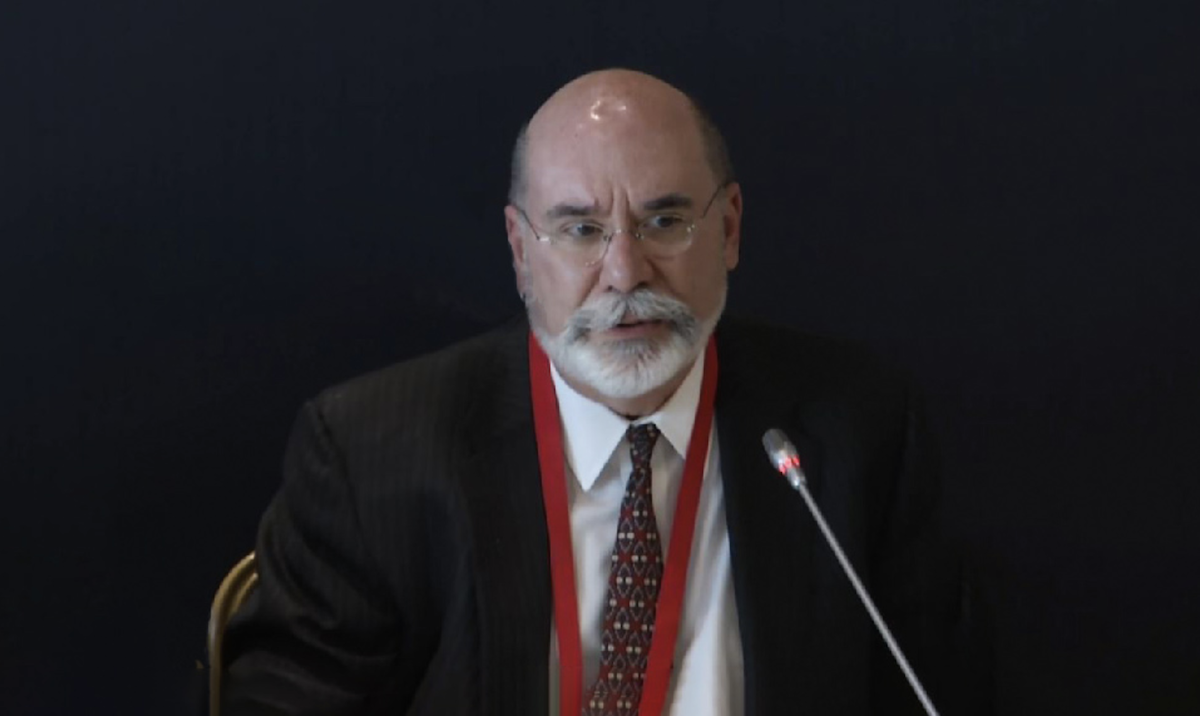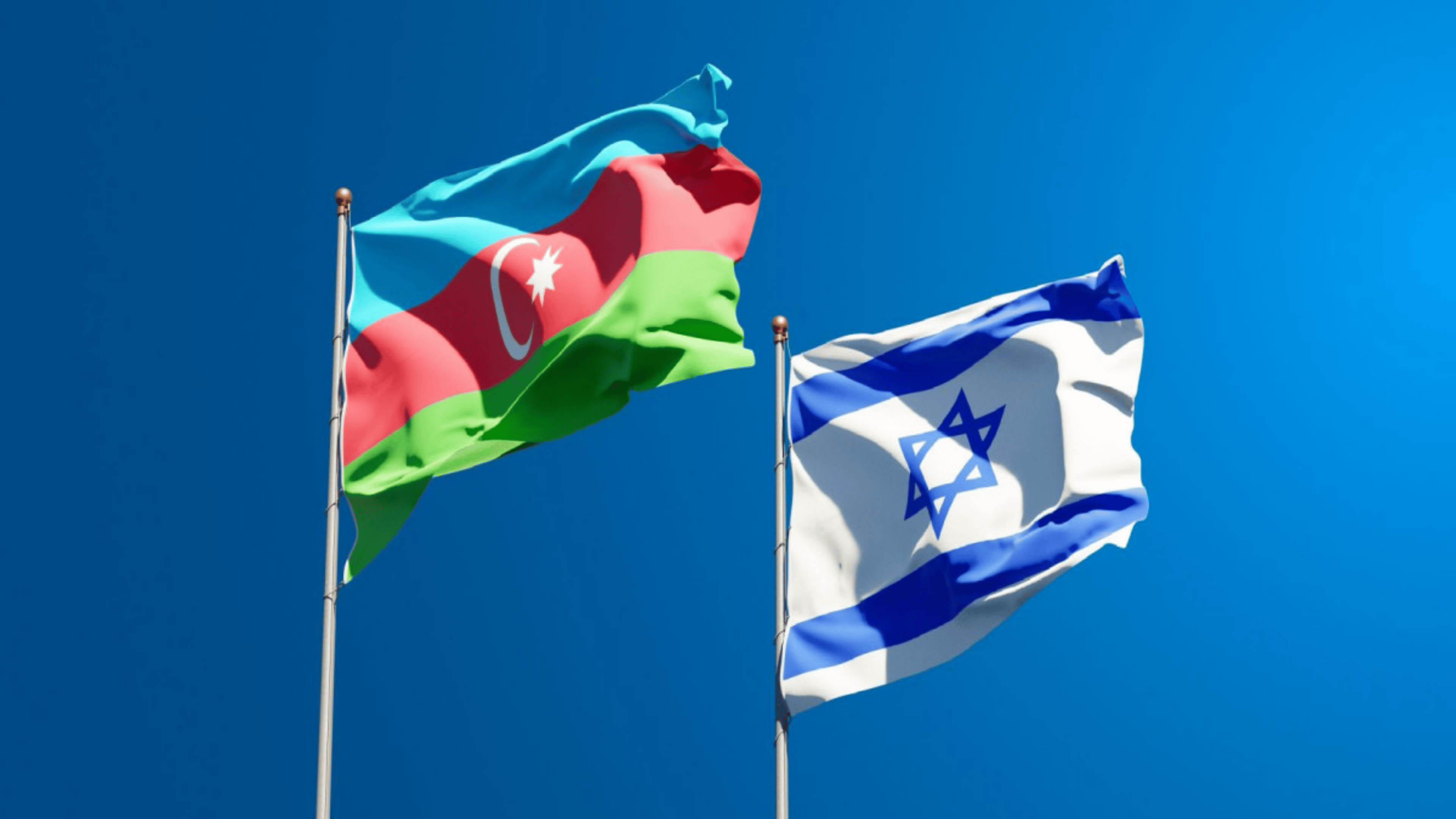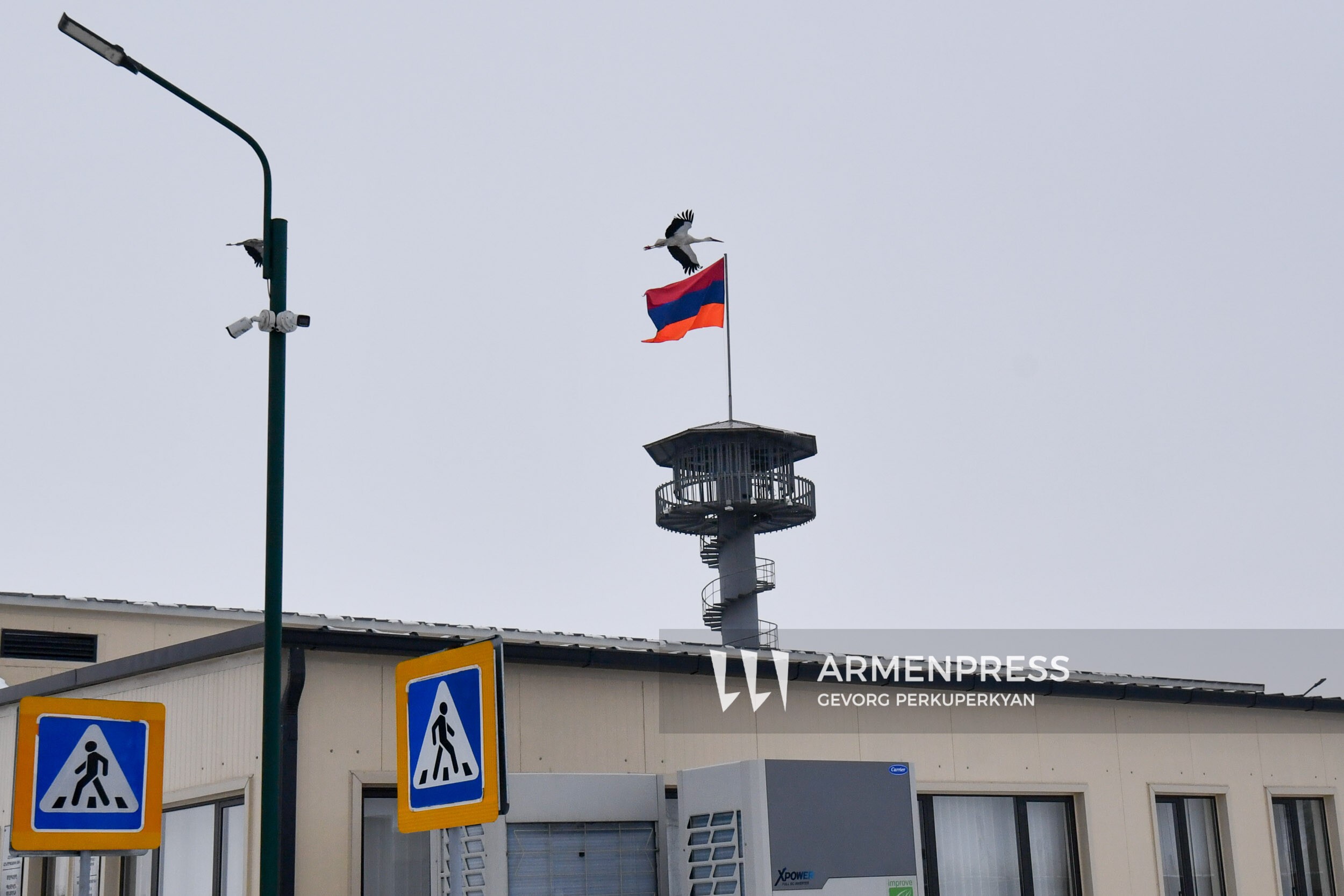Sexual assault in Armenia and those who break the taboo to speak out
For the past two months, the theme of sexual assault has been widely discussed in Armenia.
Social media users began talking about the issue after a Czech girl, named Eva, told the story of how she had been assaulted in an Armenian province, and about the public’s reaction – or rather, the lack thereof.
[su_quote]
“I fought back, kicked, screamed, but he put his hand over my mouth and I began to suffocate. Then he was able to take off my underwear. He grabbed me by the throat and choked me. Before that, I thought I had enough strength to escape. But when he started strangling me, I realized that he could kill me, just kill me right there, and no one would come to my aid.”
[/su_quote]
The rapist was sentenced to three years in prison.
• Sex education in Georgia – desperately needed, ferociously opposed
When people first started discussing this story, blogger and journalist Lucy Kocharyan started a campaign on her Facebook page with the hashtag #голос_насилия (“the voice of violence”). She published several anonymous letters that had been sent to her by sexual assault survivors. In just a few hours after posting these letters, she received two hundred more. This prompted her to create a special page, called “The Voice of Violence” where anyone can tell their stories anonymously.
[su_quote]
“I was 5 or 6 years old and we had a playroom where my sisters and I would often play. My cousin, who was 10 years older than, came to stay at our house, and he would dress me, but while doing so would hold me very tightly and rub me in a way that made me uncomfortable, and when he’d move I felt like he was pressing “something hard” against me. It was really unpleasant and I couldn’t get free…only after I got married did I realize what had happened…It’s strange that I didn’t know what it was at the time but still decided not to tell anyone, not even my mom…” recalls one of the anonymous victims.
[/su_quote]
Many people found these stories unbelievable, because the majority of the perpetrators were family members – fathers, uncles, cousins. In addition, many cases involved child abuse. The fact that the publications were anonymous also raised suspicion.
Stories from the world of the law
While social media discussed the plausibility of anonymous stories and refused to believe them, journalist Gevorg Tosunyan decided to take a look at this emotional topic from the realm of statistics. He published stories about real court cases:
“After all the noise journalist Luchy Kocharian’s posts made, I noticed that there was a lot of doubt, even among my friends. But it’s something that I’ve come across a lot, I’ve studied the phenomenon and I know that it exists and is quite dangerous. At the same time, I noticed that some of the posts on Lucy Kocharyan’s page seem exaggerated or fabricated.
“I followed the discussions people were having online for several days, and noticed that many relatively intelligent people don’t believe them and this strengthens their belief that the issue is artificially inflated in our society. This is when I decided to show people real stories. I didn’t have to spend much time looking, since I had come across similar court cases in the past. I had one goal – to present real facts with the help of a credible news source, in this case, CivilNet.”
[su_quote]
This is a description of one of the court cases Gevorg posted:
“In 2008 Artur and his friends were drinking in his home. When they ran out of vodka, he sent his daughter Anahit to the store to get more. She refused, as it was dark outside. Her father began to swear and beat her and then, threatening her with a knife, forced her into the bedroom.
“Artur took her to the room and raped her. His other daughter overheard, but was afraid to interfere. After a few minutes, Anahit ran from the house and encountered two young men in a car. They offered to drive her to Yerevan. One of them raped her in the car.
“Anahit’s sister came out of her room after the incident, saw the state of the room, realized what her father had done, and decided to kill herself. She took eight doses of one of her mother’s medications. Her father’s friend saw her and took her to the hospital, where she was treated and saved.
“The rapist was sentenced to 4 years in prison. He has already served his term.”
[/su_quote]
Gevorg is certain that people need to be given more information about the situation in Armenia:
“No matter how we turn a blind eye to this problem, it will not just disappear. I tried to bring attention to specific court cases. I did not describe the incidents themselves, but rather focused on the prison sentences, which were treated rapists rather mildly. I think that from this perspective, I have already accomplished what I set out to do, as people are expressing their disapproval of these sentences.”
Why victims remain silent
Psychologist Anush Aleksanyan believes that people who have been sexually assaulted prefer to remain silent for fear of the public’s reaction:
“Society’s attitude towards sexual assault victims isn’t right, they aren’t given any support. Therefore, they prefer to simply remain silent or speak out anonymously. We don’t have a good environment to discuss these things,” says the psychologist, recalling the story of a schoolgirl who was raped several years ago. She was unable to return to school after the incident because of the way she was treated when people found out.
Anush Aleksanyan believes the biggest problem is that society often justifies the actions of rapists and blames victims.
The psychologist says that people do not speak out about their own assault because they feel guilty – one of the inevitable consequences of assault. This is because they also carry societal stereotypes and often share others’ opinions that they are partially to blame for what happened.
Victims of sexual assault have nowhere to turn
The state does not deal with cases of sexual assault. It only gets involved when criminal actions are taken against perpetrators, and the involvement is limited to punishing the rapist.
Sexual assault survivors only have one public organization to turn to for help – the Sexual Assault Crisis Center. Since the beginning of this year, the center’s specialists have already assisted the victims of 10 cases of sexual violence, and eight of them were children.
Most victims come to the crisis center from the capital, but this does not mean that the problem is any less pronounced in other regions. It is just that the prejudices about sexual assault victims are even more prevalent in these areas.
Statistics
Official statistics show that 150-160 cases of assault are reported in Armenia every year, and the majority of the victims are minors.
But the country doesn’t have a single, unified system for reporting sexual assault, and there are various methods of data collection and processing. Therefore, different departments report different numbers.
Investigative Committee statistics report that in 2016, investigators followed 88 criminal cases related to sexual violence against children, in 2017 – 88, and in 2018 – 76. 301 persons were suspected or accused, of which 170 were relatives, family members or neighbors of the victims.
The police give different data: in 2016 – 81 cases, in 2017 – 77, and in 2018 – 50.
The “Coalition to Stop Violence against Women”has attempted to independently collect and classify cases in recent years.
Coalition data reports that the majority of sexual assault victims in Armenia are children.
In 2016, of the 160 reported victims of sexual assault, 115 were children between the ages of 5 and 17.
In 2017 164 cases were reported, 113 of them were children.
Sexual assault victims are ignored
For over year, victims of domestic violence have also been able to obtain free public defense. However, this service is not available to victims of sexual violence.
These people are not provided with legal or psychological counseling.
Research from the Sexual Assault Crisis Center shows that criminal cases of sexual assault are often dropped. In addition, almost 40% are closed in the initial investigation stages and do not even make it to court.
Under the Criminal Code, sexual violence is not punishable at all if the rapist is a lawful husband.
A study of Armenian legislation from the perspective of the Council of Europe Convention on Preventing and Combating Violence Against Women and Domestic Violence reveals a number of serious gaps.
In particular, although the convention strictly prohibits the use of “traditional excuses for rapists,” Armenian law nonetheless considers extenuating circumstances. This is once again referring to “the victim’s provocative behavior” (article 62 of the criminal code).
The same study reveals that only 6.8% of women who have experienced sexual assault turn to the authorities for help. And this is in order to avoid societal judgment.












